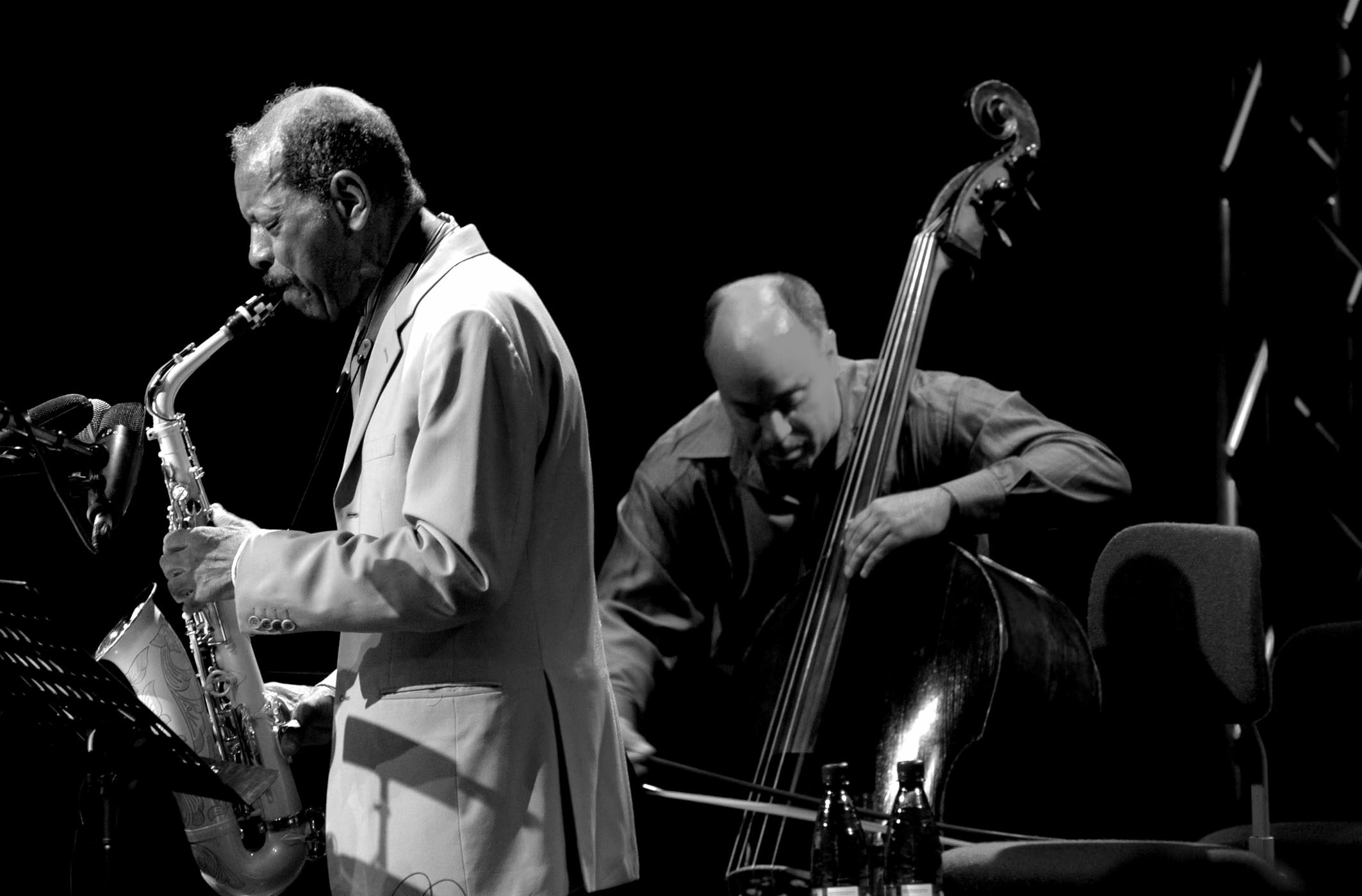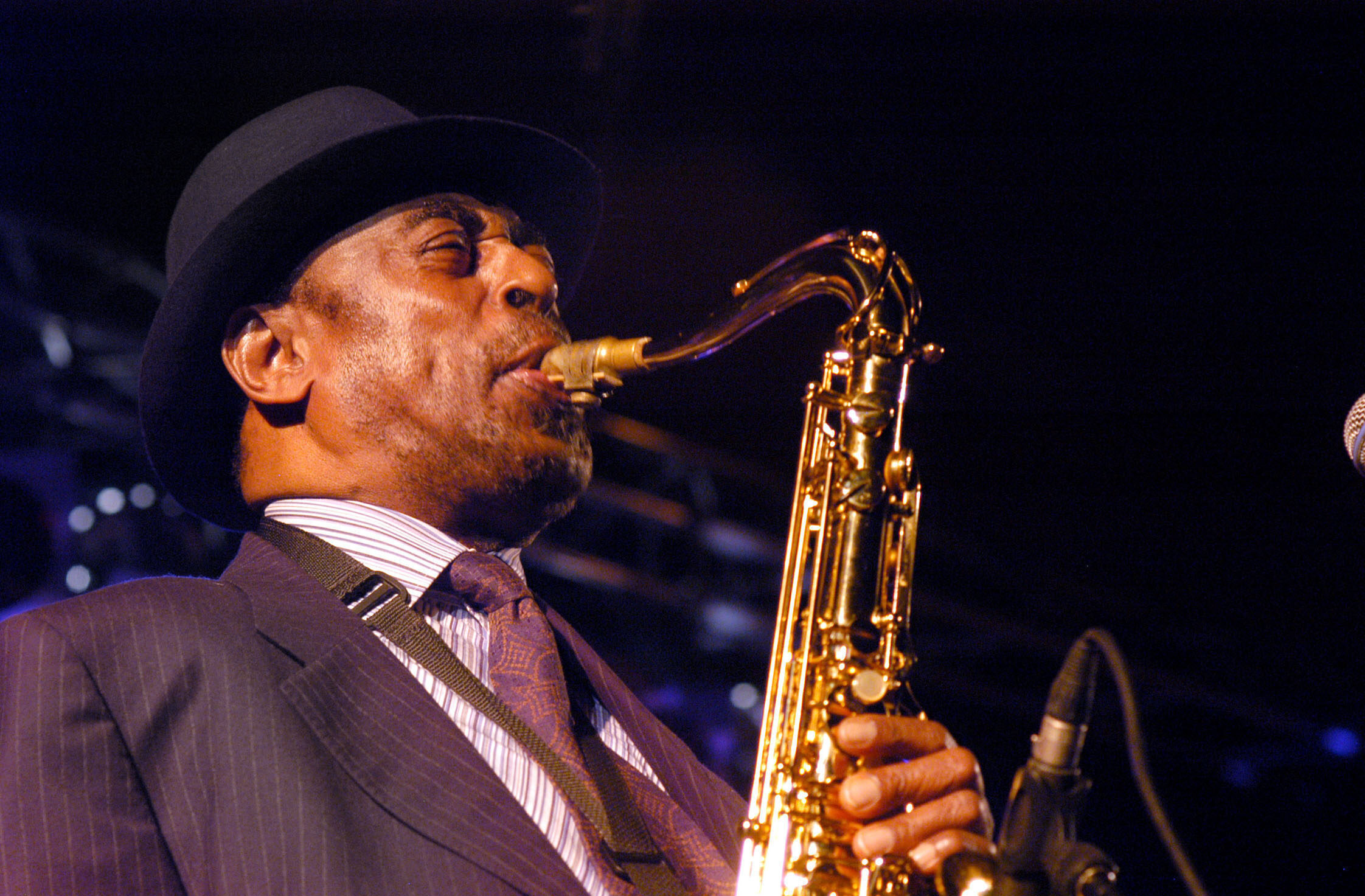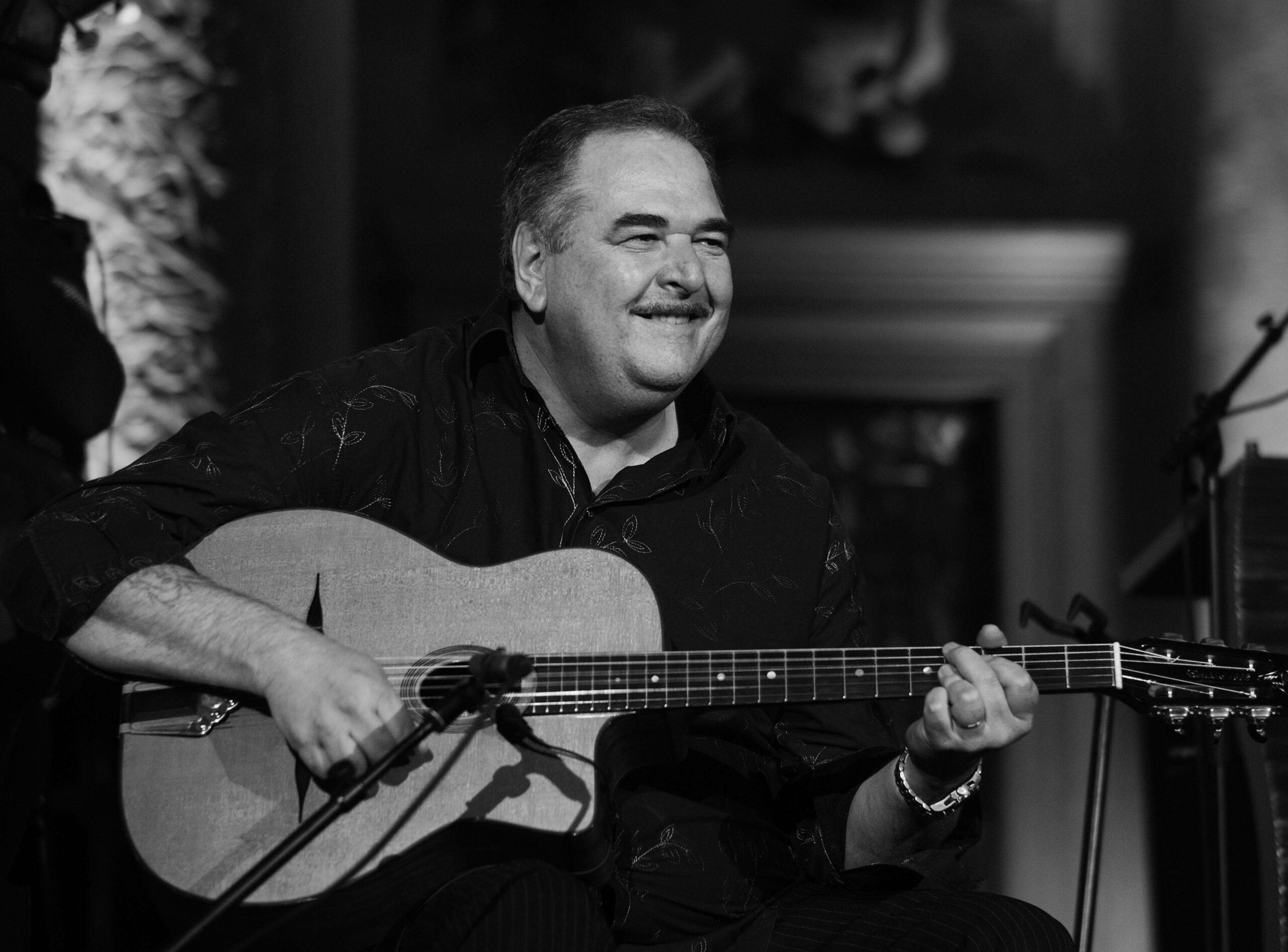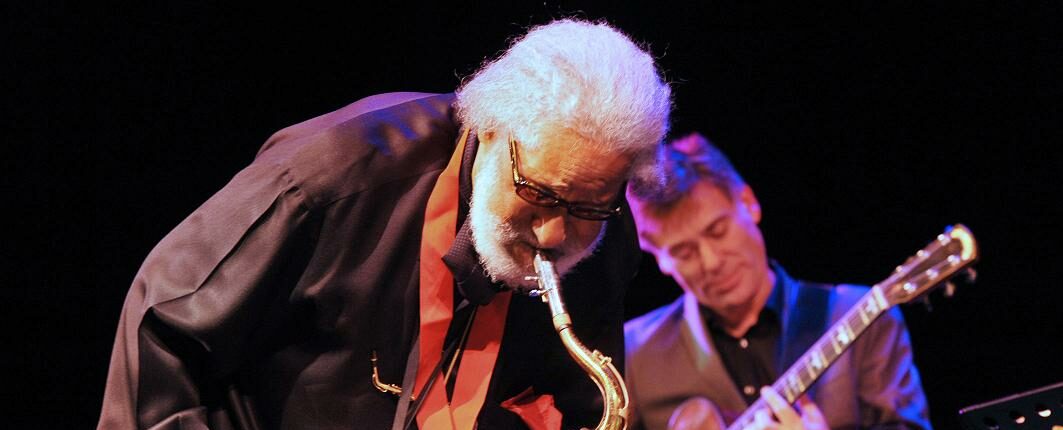Sabaka Hutchings is a deeply relaxed workaholic. He has long since become an international festival favorite. Enjoy Jazz presented the Englishman with Caribbean roots over several years with all his active formations in a kind of open showcase. With Sons Of Kemet, for example, he made a guest appearance, only at first glance disconcertingly, in the well-fashioned, sophisticated concert ambience of the BASF-Gesellschaftshaus in Ludwigshafen, in front of an audience that, more in keeping with the venue than the band, was under 50 - and triggered unexpected storms of enthusiasm. For anyone listening to this band, with two edgy rock drummers, with tuba and bass fireworks thundering into the room in circular breathing and with a saxophone of great, almost spiritual power and rhythmic adeptness reminiscent of Sonny Rollins in its free-spiritedness, senses that nothing less than a possible future of jazz is being negotiated here between high-energy modern jazz, stoic rock and Caribbean arabesques.
Here, the old merges seamlessly with the new. This music is highly complex and at no time ingratiating, but it reaches out to the young audience as a matter of course, speaking their language rhythmically and gesturally and then confronting them with a musical grammar that is often completely new to them.
Hutchings, incidentally an excellent classical clarinettist, has also long since made a name for himself as a commissioned composer (for the Ligeti String Quartet and London Sinfonietta, among others). Through Soweto Kinch, Steve Beresford and Courtney Pine, he came to improvised music during his studies and finally to jazz, working as a guest musician with Charlie Haden's Liberation Music Orchestra, among others. In addition to his own band Sons of Kemet, he is a permanent member of the hardly less successful formations The Comet is Coming, Melt Yourself Down and Shabaka & The Ancestors. He also helps out with the cult band Polar Bear, with whom Sons of Kemet shares the drummer and the thoughts on musical marketability.
Note: This interview originally took place in 2017 and is published here on the occasion of the 25th anniversary of Enjoy Jazz. The statements and references made in the interview refer to this date.
British jazz has experienced an enormous upswing in recent years and is now more vibrant and diverse than ever before. Standards have recently been set here, especially in connection with danceable grooves.
SH: For me, there's actually nothing unusual about it. What has been happening for a few years now, especially in London, is that there is a strong connection between our music and the younger audience in particular. Something has grown in the clubs. The music has somehow developed very naturally in harmony with the young audience and the reality of their lives, with the different forms of their existence. There's no other way to describe it than to say that this music doesn't just exist in the heads of the musicians, but has sought out real, sustainable connections and created new links to the outside world.
And these connections are becoming increasingly diverse.
SH: Yes, absolutely. Although I was just wondering what you meant by danceable grooves earlier? For me, it's not so important whether a music has this kind of groove or not. For me, it's more about the question: what happens in the space that this groove creates? Of course our music has this rhythmic element, which is sometimes even quite simple and in a way hypnotic, but it's in an extremely complex context. This means that the groove is only ever part of a very precisely conceived overall sound picture.
But despite all the complexity, it is clear that you have made jazz danceable again. Your concerts are happenings.
SH: Yes, because that makes sense. I've been playing improvised music for many years and I've often found that jazz is perceived by many listeners as something very cerebral, emphatically demanding, but also difficult to access. As a head without a body. But that is my perception, this music is not at all as abstract as it is often perceived. It never was for me. When I listen to Ornette Coleman's music, I don't actually hear anything abstract or even repulsive. At no time. So I asked myself: what can I do to invite listeners into my music, to give them access, unreservedly and fearlessly.
But they make surprisingly few compromises. Anyone who has heard them live with their band Sons of Kemet, you can hardly resist the impression of discovering references to Sonny Rollins' ideal of a Stream of Consciousness in their solos, which sometimes last over 17 minutes.
SH: Well, listen to these old masters - it's unbelievable. Sonny Rollins is indeed one of my heroes. Especially the period immediately after "The Bridge" with the "What's New" album is still relevant today. The way he arranged these pieces rhythmically. The way he creates a physically palpable connection between the rhythm and his saxophone is universally valid. James Brown, for example, was also able to establish this connection in a masterful way.
Do you see your music in this tradition?
SH: Absolutely. The new is often not as absolutely new as we might wish, but should also be considered in its historical context.
You currently play in at least four formations, but you only lead one of them: Sons of Kemet. Do you find it difficult to switch between the individual projects?
SH: On the one hand, it's quite easy because it's always about the same thing, namely putting your best into the music. But with Sons of Kemet, my personal responsibility is naturally greater. Also, this music is extremely physical. There are definitely parts of it that function more according to the laws of rock music, especially as far as the sound is concerned. This special energy always results in a struggle to find the best way to shape the resulting free spaces.
They have a classical education and then came to jazz through jamming in clubs at night. clubs and then came to jazz. How do you see your own development as a musician?
SH: None of this happened by chance. At every point in my life, I made exactly the music I wanted to make. I really liked playing classical pieces. But I never had a concrete idea about my future. I didn't see myself in a classical orchestra. It was always the moment that counted. When I started playing with jazz musicians, I naturally also listened to a lot of music. At the time, jazz was nowhere near as familiar to me as classical music. But I wanted to have this experience. I wanted to be able to play this music. In this respect, my musical development reflects nothing other than the obsession that I always associate with music and that connects me with music. A city like London is of course very helpful. The scene is huge, you can find excellent and open musicians here who practice all conceivable forms of improvised music, so you can try out everything. In the early days, for example, contact with the London improvisers Orchestra and musicians like Pat Thomas or John Butcher was very important for me.
You've said that you don't like to look to the future, but what do you think? how do you think the very exciting combination of busy musician and no less sought-after composer in demand with you?
SH: At least I don't see any conflict there. I always compose when I have time to spare free time or when I have a deadline to meet. It's also less about about inspiration. If I know I have two days left to deliver a piece, then I'll get it done. I then just sit down and write. At the moment, however, I have the feeling that composing and touring often don't result in a really healthy mix. I've decided to organize everything a bit more in blocks and hopefully get more sustainability into the processes - and perhaps also clearer boundaries.
Let's see ...

Date: December 7, 2023





